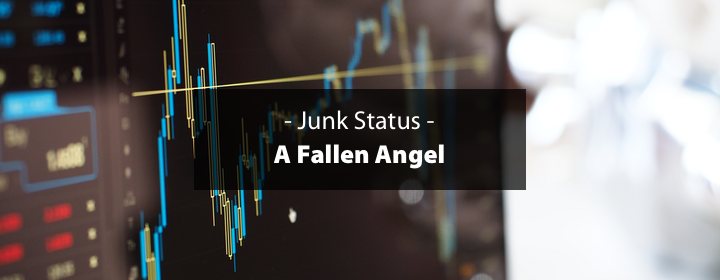The South African landscape of junk status is looking rocky and, in a time like this, it is important to stay informed about what is happening and how it could affect you.
Political risks from South Africa’s cabinet reshuffle on the last day of March 2017 have been labelled accountable for Standard & Poor’s (S&P) downgrade of the country’s international credit rating to junk status and the subsequent currency crash.
In spite of Jacob Zuma’s attempts to encourage his cabinet to quell the fears of international investors, his firing of some of his critics and the finance minister, Pravin Gordhan, who was seen as a stalwart supporter of anti-corruption, has created a whirlwind of chaos. After regaining strength and reaching a 20-month high, the South African Rand recently plunged by 13% against the US Dollar, and analysts predict that it will continue to weaken.
Malusi Gigabathe, the newly appointed finance minister, has assured us that the ratings cut will ensure greater government focus on transforming the economy and addressing the racial inequality in working life.
WHAT DOES THIS MEAN?
Countries that are downgraded to junk status are often referred to as ‘fallen angels’. Many investment funds – both local and international – are not allowed to invest pensions or savings in countries that have this status.
Christie Viljoen‚ senior economist at KPMG South Africa‚ explained to TimesLive that, as a result, “investment funds will sell their debt as they are mandated to place their money in investment-grade jurisdictions only.”
Reuters has even reported that as much as US$10 billion dollars could leave South Africa. The Rand will then continue to plummet as more and more people sell Rands and buy other currencies instead.
However, the slightly reassuring news for the time being is that the Global Bond Index refers to the country’s domestic credit rating. As S&P didn’t downgrade South Africa’s domestic rating to junk status as well, it is fortunately unlikely that foreign investors will be forced to withdraw as stands.
Also, many foreign investment mandates do still allow for investment in a country so long as it remains on an investment grade rating of at least one credit rating agency.
Even though that may be the case, many argue that its junk status will still make South Africa unattractive to foreign investors, which would result in less job opportunities.
HIGHER FUEL PRICES
It could also become a more expensive place to live, as oil is bought in US dollars so this price rises when the Rand weakens as a knock-on effect of the instability. This means that South Africans are likely to see a rise in petrol prices and thus transport costs, which will affect the cost of everything that is transported in trucks – so basically, anything you buy at the shop.
HIGHER INTEREST RATES
The junk status will also push up South Africa’s borrowing costs and could, therefore, drive increases in interest rates. This means that the people who will be most negatively affected by the downgrading are those who have debt – from short-term loans, to long-term car and home loan obligations – as their debt will increase and be harder to pay.
The Mail & Guardian explained the situation clearly on a Twitter thread:
“Junk status effectively means a country becomes a defaulting risk because it can’t pay back what it has borrowed … The two biggest consequences of a credit junk-grading are political and financial. When gov can’t borrow from capital markets, it has to borrow from other governments (look East?) or institutions like the IMF. This is the kicker because this leads to a loss in sovereignty. Typically there are strings attached… The structural adjustments imposed by the IMF & World Bank can affect national policy. Everyone is affected but some more so than others. The poor will bear the brunt of the downgrade, as will young people.”
S&P also expects the interest costs on government debt to rise from 3.2% of GDP to 4.25%. If this happens, there could end up being less money for other expenditures such as health, infrastructure and education.
Times Live clarifies that “junk status ultimately means the government will pay much more to borrow money. The government then has two choices: to cut spending or increase taxes to cover the extra costs spent on debt.”
LIGHT AT THE END OF THE TUNNEL
However, even with the threat of an increase in tax and interest rates, and a generally higher cost of living, it may not be all doom and gloom for investors. Nafez Zouk, senior economist at Oxford Economics explained to Reuters that “fallen angels often draw in a different investor base seeking higher yields and more speculative investments.”
Certain emerging market fund managers are waiting for opportunities such as the one South Africa could present and, although its trajectory may not be looking positive for a few years thanks to the political situation, Jan Dehn at Ashmore Investment Management suggested that “if prices fall enough that the credit has been oversold relative to how risky it is, then clearly that’s a buying opportunity.”
In a time of chaos, it is important to keep your wits about you and not simply make emotional decisions, especially with regards to an investment portfolio. Review your financial situation rationally to prepare for your future, protect your investments and make your money work for you.
